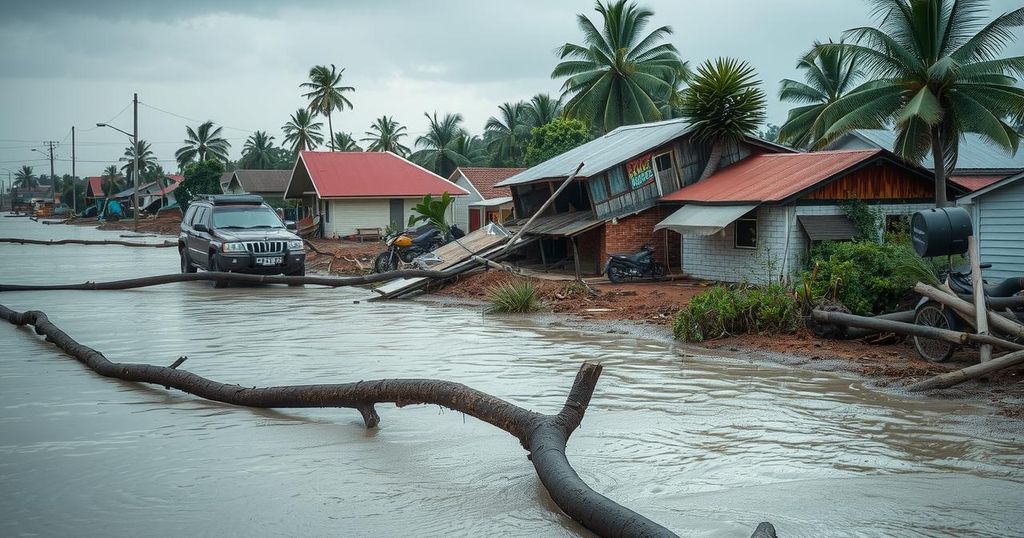Cyclone Chido Causes Major Catastrophe in Mozambique with Rising Death Toll

Cyclone Chido has caused the death toll in Mozambique to rise to 75, nearly doubling previous estimates. It affected the northern province of Cabo Delgado, which was already dealing with a long-term insurgency. Extensive destruction has been reported with critical infrastructure heavily damaged, complicating rescue efforts and heightening the ongoing humanitarian crisis.
The death toll from Cyclone Chido’s devastation in Mozambique has tragically risen to 75, nearly doubling previous estimates, as rescue teams reached isolated areas affected by the storm. Striking the already troubled northern province of Cabo Delgado early this week, the cyclone has reportedly caused at least 69 deaths, with 740 individuals injured, according to the Mozambique National Institute for Natural Disasters. Rescue operations revealed overwhelming destruction—many buildings were completely flattened, and vital infrastructure was severely damaged.
Reports from the region portray scenes of comprehensive devastation. In the district of Mecufi, virtually all structures have been destroyed. Isadora Zoni, an official with the United Nations’ refugee agency, described the area, stating, “What you see is utter destruction.” Homes constructed from mud and wood were obliterated, and critical facilities, including a maternity health clinic, suffered extensive damage. The storm further compounded the dire situation of individuals displaced by ongoing conflict in the region, where hundreds of thousands had already fled insurgent violence.
Cyclone Chido, classified with wind speeds reaching 115 miles per hour, made landfall in a part of Mozambique frequently impacted by severe weather events. Following its destructive path, the cyclone has also affected the French island of Mayotte, where at least 31 deaths have been reported, and more are feared. The United Nations refugee agency cautioned that Cyclone Chido may signify the onset of a particularly intense rainy season, which is historically prone to cyclones and severe flooding in the southern Indian Ocean region. In previous years, catastrophic storms, including Cyclone Freddy in 2022, had similarly led to significant loss of life and displacement in Mozambique.
Mozambique, situated in the southern part of Africa along the Indian Ocean, has been severely impacted by climate change, exacerbating its vulnerability to natural disasters such as cyclones. The country faces a persistent dual threat from extreme weather and internal conflict, particularly in northern provinces like Cabo Delgado. This region has been marred by years of violence from an insurgent group, leading to massive displacement of its population. In recent years, cyclones have increasingly ravaged the area, leading to loss of life and destruction of infrastructure, which complicates the humanitarian situation. Previous storms like Tropical Cyclone Freddy and Cyclone Gombe have left many casualties and highlighted the region’s ongoing struggle with environmental crises.
In conclusion, the aftermath of Cyclone Chido has significantly worsened a challenging humanitarian crisis in Mozambique. With an alarming rise in the death toll now reaching 75, the cyclone has further aggravated the situation in Cabo Delgado, where a long-standing insurgency had already displaced hundreds of thousands. The extensive destruction of infrastructure and homes presents grave challenges for recovery as the region braces itself for an intense rainy season that may bring more calamities.
Original Source: www.nytimes.com








